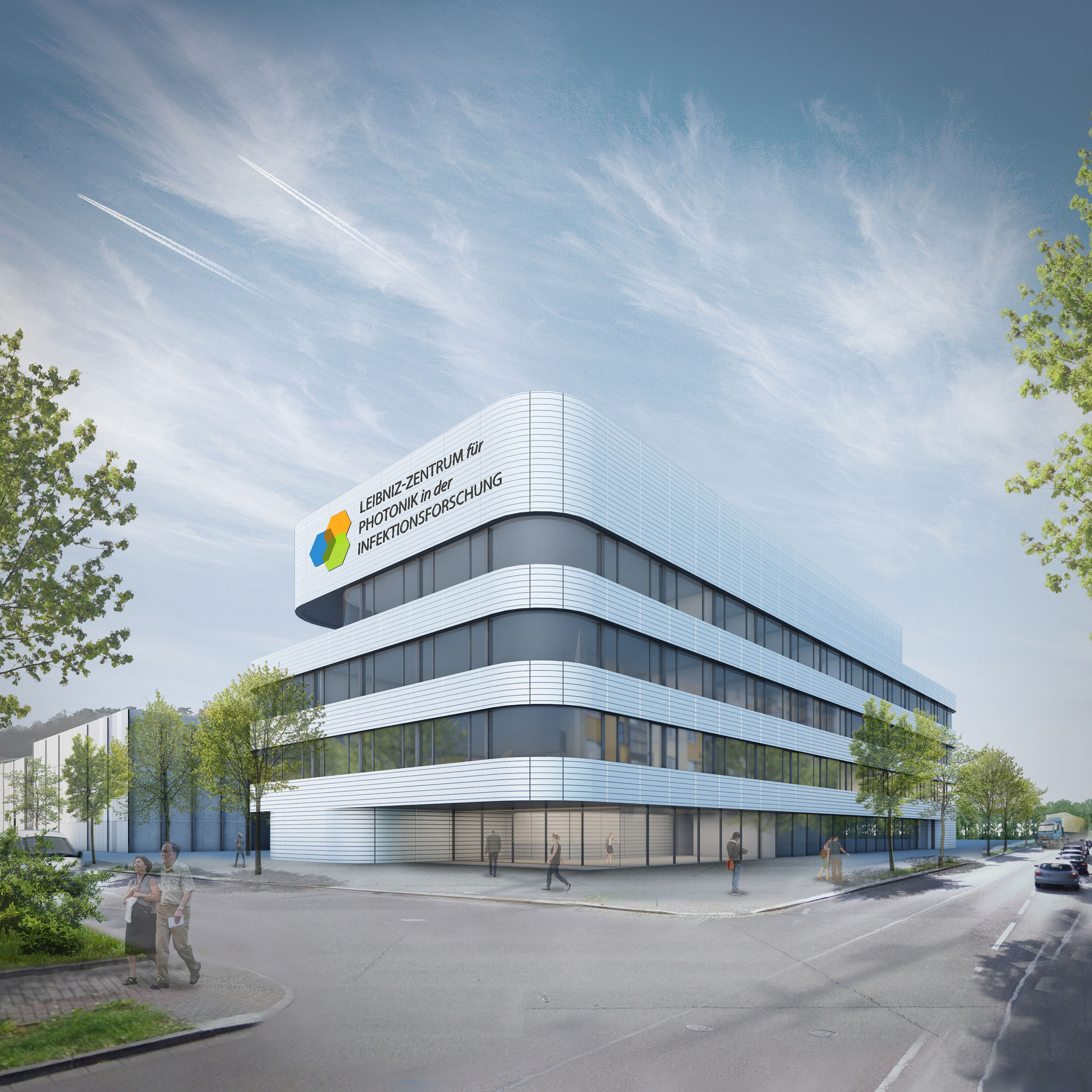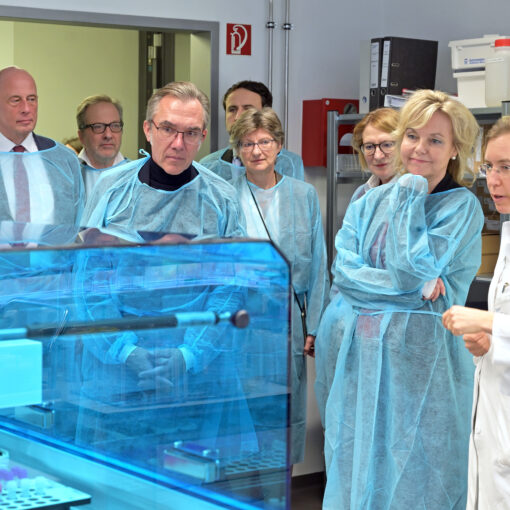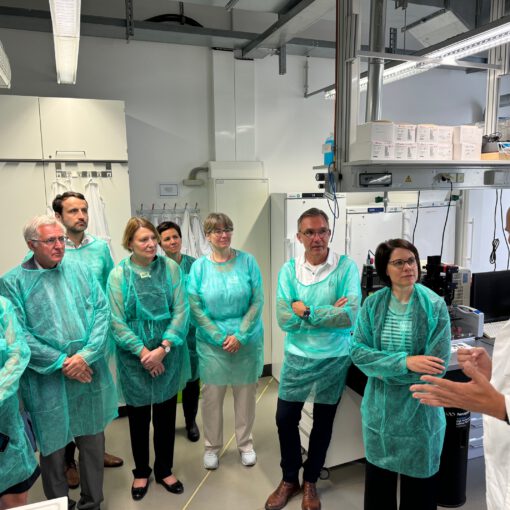The German Council of Science and Humanities (Wissenschaftsrat) rated the plans for the “Leibniz Center for Photonics in Infection Research” (LPI) in Jena as very positive, according to the “Report on the science-led assessment of large-scale research infrastructure projects for the National Roadmap” published on Monday, July 17, 2017. From 2018, an open-user center could be created where photonic solutions for diagnostics, monitoring and experimental therapy for infections are researched and developed with industry into functional solutions. In its assessment, the WR praises the unique photonics approach that could lead to improved diagnostics and therapy worldwide – especially for multi-resistant pathogens. The LPI was jointly applied for by the Leibniz Institute for Photonic Technologies Jena e.V. (Leibniz-IPHT), the Leibniz Institute for Natural Product Research and Infection Biology – Hans Knöll Institute (Leibniz-HKI) as well as the University Hospital Jena and the Friedrich Schiller University Jena under the auspices of the Leibniz Association.

Unique, outstanding, groundbreaking and pioneering – this is how the Science Council evaluates the initiative for the “Leibniz Center for Photonics in Infection Research” in Jena. The LPI is one of eleven concepts for extensive research infrastructures that were reviewed and comparatively evaluated by the Science Council at the request of the German Federal Ministry of Education and Research (BMBF). The evaluation procedure is to serve the BMBF as a basis for decision-making for inclusion in the National Roadmap, the program for large-scale research projects of the Federal Government, in the coming legislative period.
By combining photonic methods with infection research, LPI creates diagnostic approaches and targeted therapeutic procedures that are directly transferred to application and industrial production. The aim is in particular to bring together diagnostics and therapy – so-called theragnostics. According to the Science Council, LPI can thus “revolutionize pathogen diagnostics worldwide” and offer “enormous potential for the development of novel technologies, new sensors and measurement techniques, and new lead structures.”
Matthias Kleiner, President of the Leibniz Association, sees the special charm of the project in its strong application focus: “The LPI closes the gaps that still exist in Germany in the translation of research results and drastically shortens the time to market. Until now, it has taken an average of 14 years for scientific results to benefit patients in the form of medical products. Shortening this period through LPI will be a major step forward.”
The joint research project is to be realized in a new building on the grounds of Jena University Hospital. “This will allow us to take, examine and work with real patient samples under highly standardized conditions,” says Michael Bauer, director of the Department of Anesthesiology and Intensive Care Medicine at Jena University Hospital (UKJ).
Solutions in the targeted problem areas have “enormous social significance,” according to Wissenschaftsrat. In the economic sphere, a positive effect can be expected for Germany as a business location.
Open user platform for rapid translation
With its cross-disciplinary approach, the LPI serves a very broad user group in science, according to the Science Council. In addition, there is a great deal of interest on the part of industry. As a platform open in principle to all users, the Leibniz Center regulates access via a peer review process that evaluates the scientific excellence of the proposed projects.
With the unique combination of photonics and infectious diseases, the LPI helps Germany as a research location to achieve a considerable increase in international visibility and attractiveness, according to the Science Council. In particular, young scientists are attracted by the master’s program “Medical Photonics” and by doctoral programs. LPI is also an attractive environment for established scientists and clinical staff. For Thuringia and the metropolitan region of Central Germany, the infrastructure measure could therefore mean a significant boost to development.
Linking to established cooperation concepts in Jena
The basic idea behind the LPI is to maximize the bundling of knowledge, experience and expertise from a wide range of disciplines: At the center, the interdisciplinary competencies of the Leibniz Association as well as the know-how in the field of photonics and infection research that has long existed in Jena come together. Specifically, LPI combines under one roof the research approaches of the two Leibniz research associations “Leibniz Health Technologies” and “Infections’21” with those of the Jena-based InfectoGnostics research campus, a public-private partnership that has already been able to successfully launch products for infection diagnostics. Experience from “InfectControl2020” – a BMBF project coordinated in Jena for all of eastern Germany – is also being incorporated.
Jürgen Popp, spokesperson for Leibniz Health Technologies and Scientific Director of the Leibniz IPHT, sees this cooperative approach as a unique feature of Jena: “The basis for this nationally significant project is the extraordinarily close and good cooperation between the university, clinic and two Leibniz institutes, as is characteristic of research in the city on the Saale.”
The LPI is to be built in three phases: The preparatory phase (2016-2018), which is currently already underway, will be followed by a realization phase (2019-2023) and will be concluded by an operational phase for use and stabilization (2024-2033). A final decision and publication of the National Roadmap by the BMBF is expected in early 2018.




